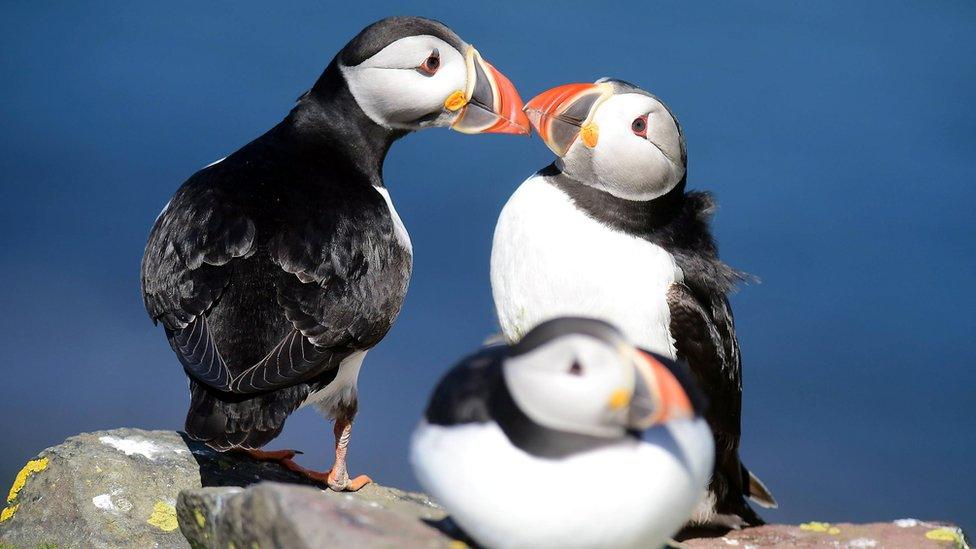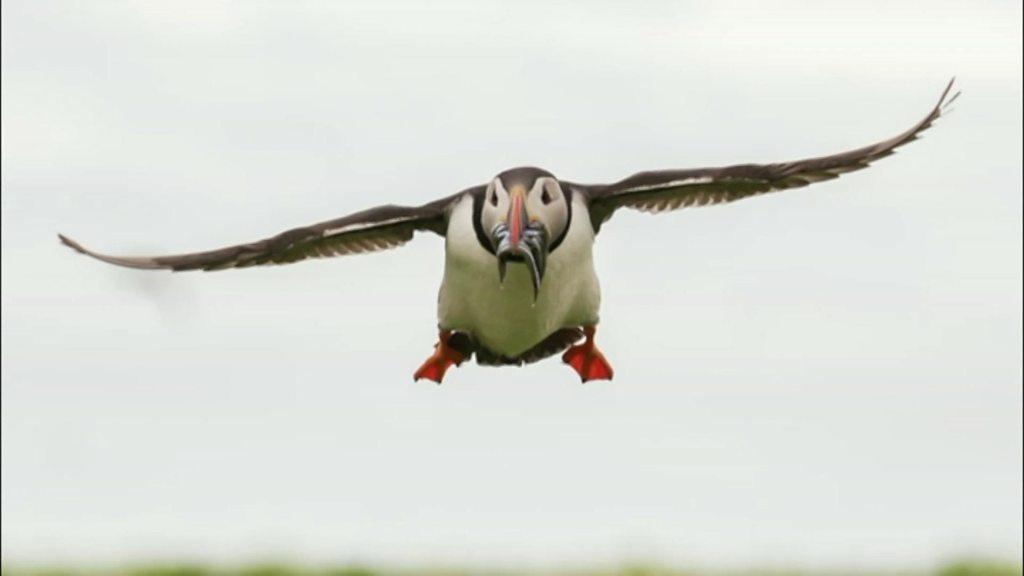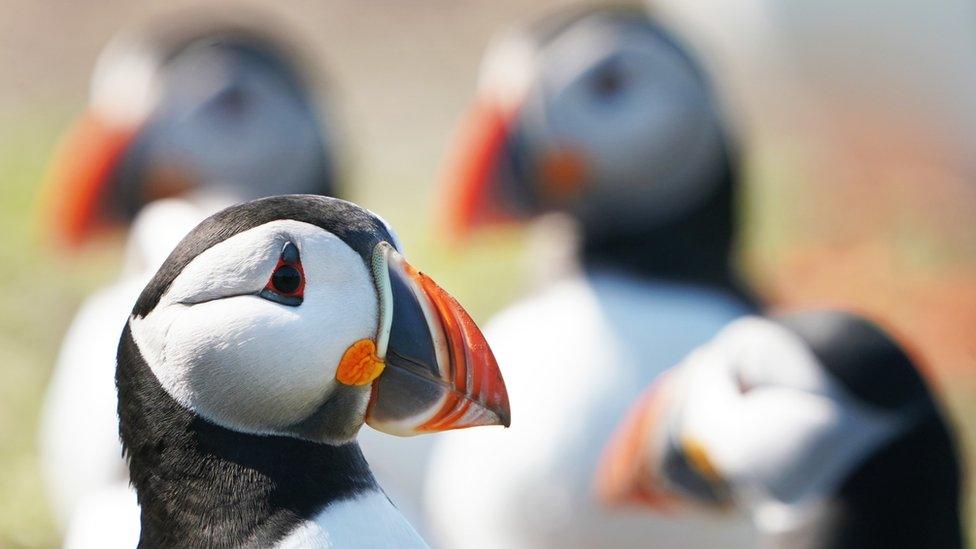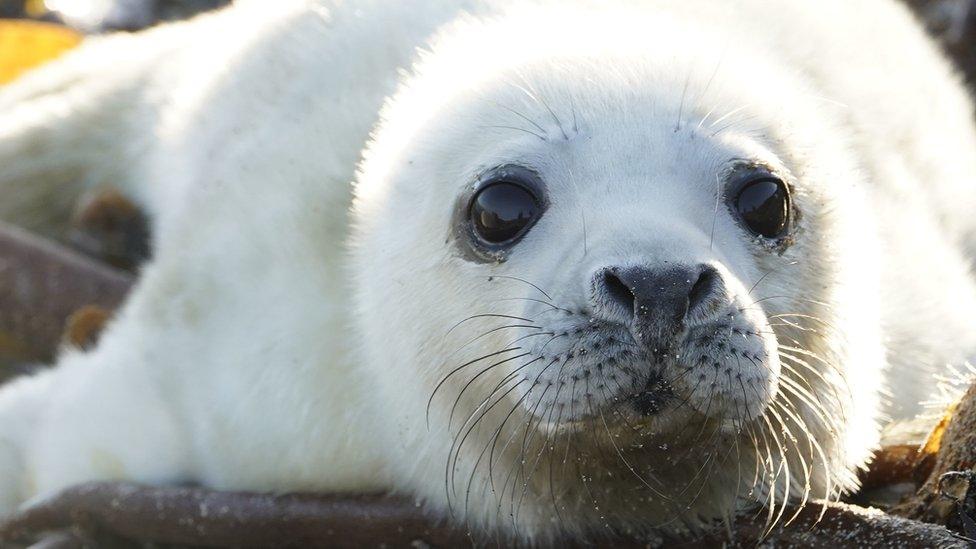Boat owners warned of seabird predators
- Published

Puffins live on a number of islands off the British coast
Boat owners are being encouraged to check their vessels for animal stowaways trying to get to islands to prey on seabirds.
The National Trust, RSPB and National Trust for Scotland's new biosecurity campaign aims to protect puffins, Manx shearwater and European storm-petrel.
They fear colonies could be devastated if predators like rats, stoats and mink get to the birds' islands.
The campaign is part of a £700,000 biosecurity project.
Seabirds make their home on islands including the Farne Islands off the coast of Northumberland, Grassholm off the Welsh coast, Copeland in Northern Ireland, and Foula, one of the Shetland islands.
The organisations warn predators could eat eggs and chicks, causing declines in populations or even wiping breeding colonies out.

The Farne Islands have a large number of nesting seabirds
Measures include encouraging boat owners to check their boats, cargo and baggage and for day trippers to check their bags and keep any foodstuffs in animal-proof containers to avoid attracting animals.
The UK is home to an estimated eight million breeding seabirds, with up to half of the EU population of seabirds breeding on islands which are naturally free of predators.
Dr David Bullock, from the National Trust, said: "Many of the UK's incredibly important seabird populations are in serious trouble and their colonies have to be free from disturbance in order to breed successfully.
"We need to do all we can to help them, not only to secure their future but also to protect our wider marine environment."
You may also like:
The campaign forms part of the Biosecurity for Life project, which has been awarded the funding from the EU Life nature scheme,
Project manager Tom Churchyard said: "Very few of the UK's internationally important seabird islands have any protection against the arrival of new predators.
"New incidences are reported every year from islands around the UK, and climate change among other factors is expected to make these a more common occurrence."
- Published15 May 2019

- Published7 May 2019

- Published19 December 2018
